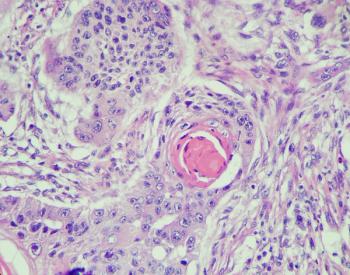
McKesson and state associations are advocating for community pharmacies through initiatives like McKesson Amplify that support advocacy work.

McKesson and state associations are advocating for community pharmacies through initiatives like McKesson Amplify that support advocacy work.

Roughly one-third of patients with cancer do not achieve adequate pain control.

The authors emphasize that these findings suggest a need for targeted resources that help reduce boarding and promote equitable access to care.

Extended treatment with high doses of cisplatin-based chemotherapy is associated with severe and progressive hearing loss.

By embracing innovation in solid state cooling and proactively adapting to regulatory changes, pharmacies can improve patient access and compliance to medications, while taking advantage of additional revenue streams and proactively managing down costs.

Roflumilast is approved as a once daily and steroid-free cream for rapid disease clearance and significant reduction in itch and for long-term disease control.

The RECTIFIER framework was able to screen patients with heart failure more accurately and with a cheaper cost than traditional screening methods.

Daily multivitamin users were associated with a 4% higher mortality risk compared to nonusers.

In a new report, the FTC says pharmacy benefit managers act as middlemen in the pharmaceutical industry, leading to the squeezing of independent pharmacies and increases in prices for patients.

The authors note that the oral, at-home treatment can be a better alternative for patients by reducing inconveniences that come with the injectable and nasal administration methods.

Older adults who take aspirin for primary prevention of cardiovascular disease are at an increased risk of bleeding.

Treatment often involves a complex daily routine of reconstitution and subcutaneous injection, along with strict storage requirements.

Higher vaccination rates were associated with less prevalent asthmatic symptoms, but additional research is needed to confirm these findings.

The American College of Clinical Gynecology recommends consideration of brexanolone or zuranolone in postpartum patients with onset of moderate-to-severe perinatal depression in the third trimester or within 4 weeks postpartum.

The drug is intended to treat individuals with metastatic or locally advanced melanoma.

Individuals with tattoos were found to have a greater risk of developing malignant lymphoma, with the risk being highest within 2 years of receiving a tattoo.

Early diagnosis and comprehensive treatment may lead to full recovery for patients.

Fish are rich in nutrients that aid in brain development, and the model can help provide more guidance for pregnant individuals when consuming seafood.

When used correctly, weight-loss medications, such as glucagon-like peptide-1 (GLP-1) medications, can be a tool to help reduce costs and provide clinical results.

When initiated at a 15 mg dose and escalated to 30 mg, upadacitinib showed superiority compared with dupilumab, achieving Eczema Area and Severity Score (EASI) 90 at week 16.

Following the previous FDA approval of faricimab-svoa to treat some of the leading causes of vision loss, the Administration has approved a single-dose prefilled syringe of the drug which could lead to safer and more efficient administration while easing patient burden.

The findings show that those with higher plasma homocysteine concentrations experienced more sleep apnea events per hour compared with those with lower concentrations.

Pulsed field ablation may offer patients an efficacious treatment option with limited damage to surrounding tissues.

By developing the Shizuoka score, which features a new predictive model using machine learning, patients with Kawasaki disease who are non-responders to intravenous immunoglobulin were able to be accurately identified.

Researchers found that certain mutations in KLHL6 can lead to an increase in the number of B-cell receptors, resulting in poor outcomes for patients with diffuse large B-cell lymphoma.

ADI-270 is a gamma delta CAR T-cell therapy candidate targeting CD70-positive cancers.

Researchers identify significant proteins involved in the growth and survival of malignant multiple myeloma cells.

In the 2 mg bulevirtide (Gilead Sciences) group, 44% of individuals achieved HDV RNA that was undetectable compared with 70% in the 10 mg group.

Real-world data and artificial intelligence (AI) are poised to revolutionize drug development by optimizing clinical trials and regulatory approvals, if data quality and patient privacy challenges are addressed.

Vitamin D could mitigate negative impacts on neurobehavior and weight gain caused by consumption of monosodium glutamate (MSG).